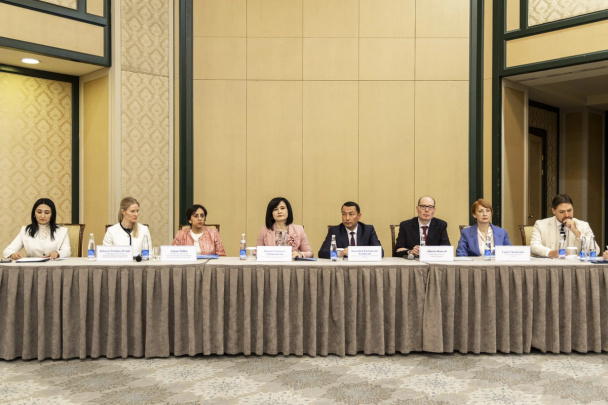Uzbekistan drops in global English proficiency index; ranking compilers explain reasons
Despite the increasing focus on English education in Uzbekistan, the country recently dropped five places in the EF English Proficiency Index (EF EPI), ranking 98th among 114 nations. Dmitry Fedorov, CIS Country Manager at EF Education First, explained in an interview with Kun.uz how the ranking is compiled and stressed the significance of English proficiency assessments.
EF Education First developed the EF EPI as a standardized tool to measure English proficiency across countries. Fedorov noted that the rankings are based on data from the EF Standard English Test (EF SET), a free online assessment that evaluates reading, listening, speaking, and writing skills.
“The EF SET is designed to provide a reliable evaluation of language skills for individuals aged 18 and above. It offers both personal language assessments and contributes to a global dataset for analyzing language learning trends,” Fedorov said.
Uzbekistan’s drop in the rankings may appear surprising given the growing number of IELTS, TOEFL, and SAT test-takers in the country. However, Fedorov highlighted the difference between specialized test preparation and general language proficiency.
“While many achieve high scores in international exams through intensive preparation, the EF SET provides a broader snapshot of the population’s English skills,” he explained. “Our test reflects general competence, capturing data from individuals who may not be focused on preparing for a specific exam.”
Fedorov also revealed that more than 7,000 individuals from Uzbekistan took the EF SET last year, with the platform’s popularity growing organically without advertising.
One challenge faced by EF is maintaining the test’s reliability and integrity amid concerns about question repetition. Fedorov assured that EF employs robust anti-cheating mechanisms.
“The test uses adaptive technology, dynamically changing questions based on individual performance,” he said. “We also monitor IP addresses, limit attempts per user, and flag inconsistencies or suspicious results to maintain a cheat-resistant assessment.”
Fedorov emphasized that the EF EPI rankings can serve as a valuable tool for governments and educational institutions to assess and improve English education systems.
“In countries like Italy, EF SET is integrated as a final exam for school students, ensuring unbiased and standardized evaluations,” he said. “We are ready to support Uzbekistan in implementing similar systems to enhance language learning across all age groups.”
The rankings, Fedorov added, also reveal gaps in English proficiency between different educational levels. For instance, a decline in university-level English skills might indicate insufficient school preparation.
Fedorov concluded by encouraging broader participation in the EF SET to ensure more representative results. “The quantity and diversity of participants are crucial,” he said. “With greater engagement, we can achieve more accurate insights into Uzbekistan’s English proficiency landscape.”
However, it is worth noting that the ranking compiled by EF Education First may not fully reflect the general state of English proficiency in a given country. For instance, following the Youth Affairs Agency of Uzbekistan's announcement to reimburse test-related costs for applicants achieving specific scores in international exams (e.g., band 7 in IELTS), the number of high-scoring test-takers in Uzbekistan has increased significantly.
In 2018, EF Education First placed Uzbekistan 86th out of 88 countries. Since then, Uzbekistan’s position has steadily declined, despite the improving proficiency levels of English learners.
The system’s anti-cheating mechanisms also require further refinement, as test-takers can manipulate results using AI and other tools.
To conclude, the EF English Proficiency Index should be viewed as a call to action to enhance language learning rather than a definitive measure of a country's English proficiency level. While the index highlights areas for improvement, Uzbekistan’s growing focus on English education and increasing numbers of high achievers in international tests indicate positive progress. By addressing challenges such as broader participation and test integrity, Uzbekistan can improve its global standing and ensure sustainable language learning development.
Related News

09:46 / 27.02.2026
Indian investments in Uzbekistan surge by 135% in 2025 – Ambassador

19:26 / 26.02.2026
Uzbekistan partners with Cambridge and UNICEF for total school curriculum reform

17:41 / 24.02.2026
Uzbekistan expands work and travel program to technical college students

16:36 / 24.02.2026



